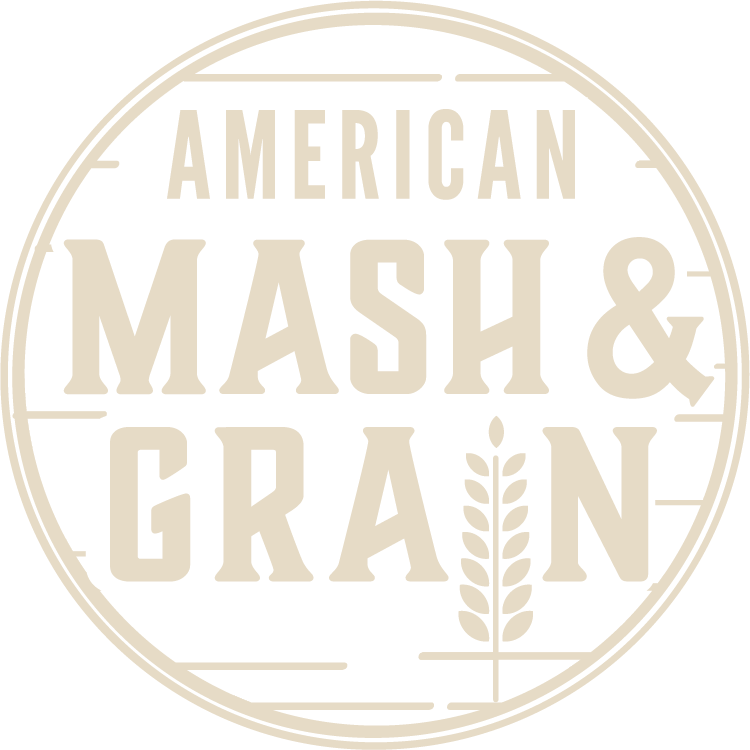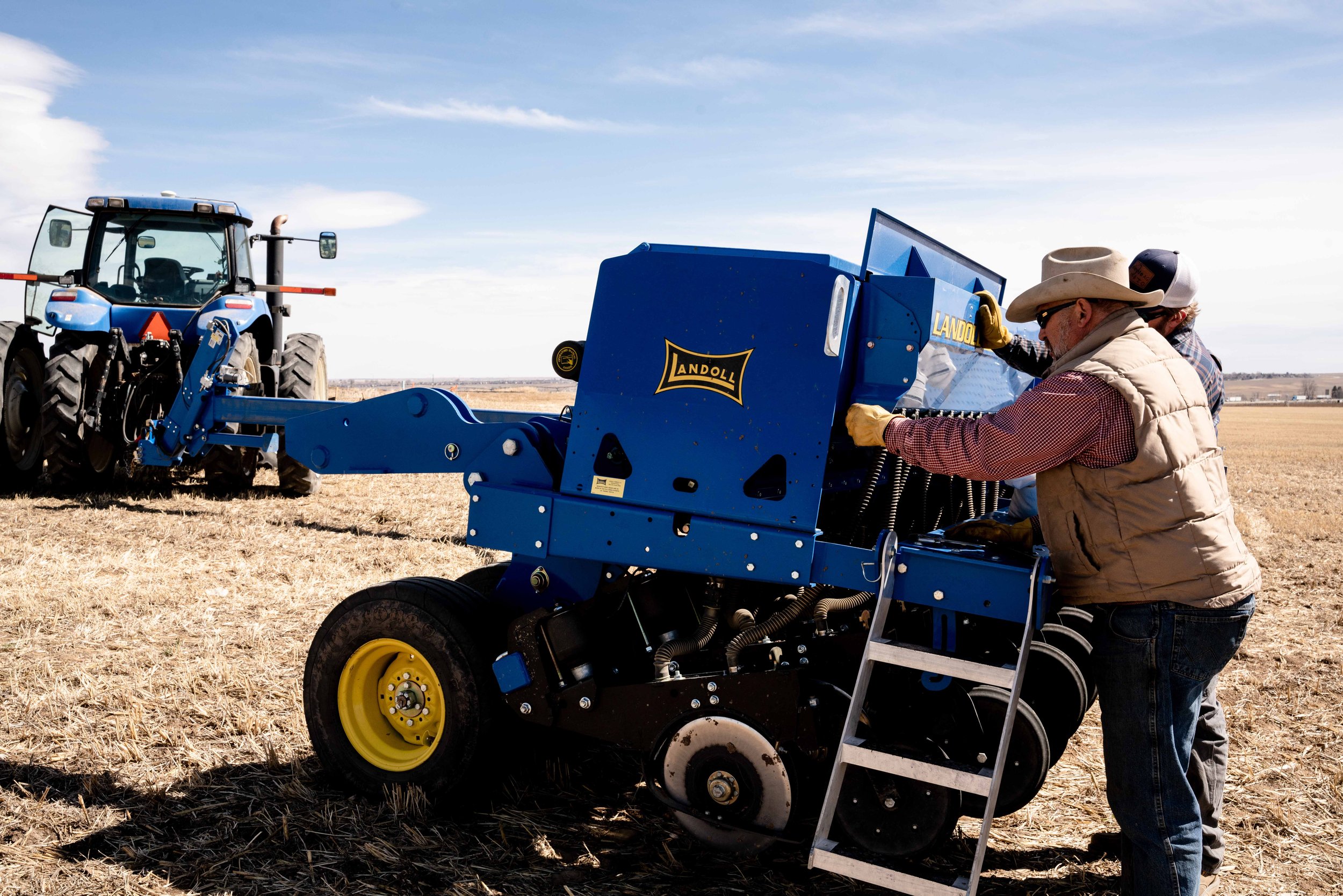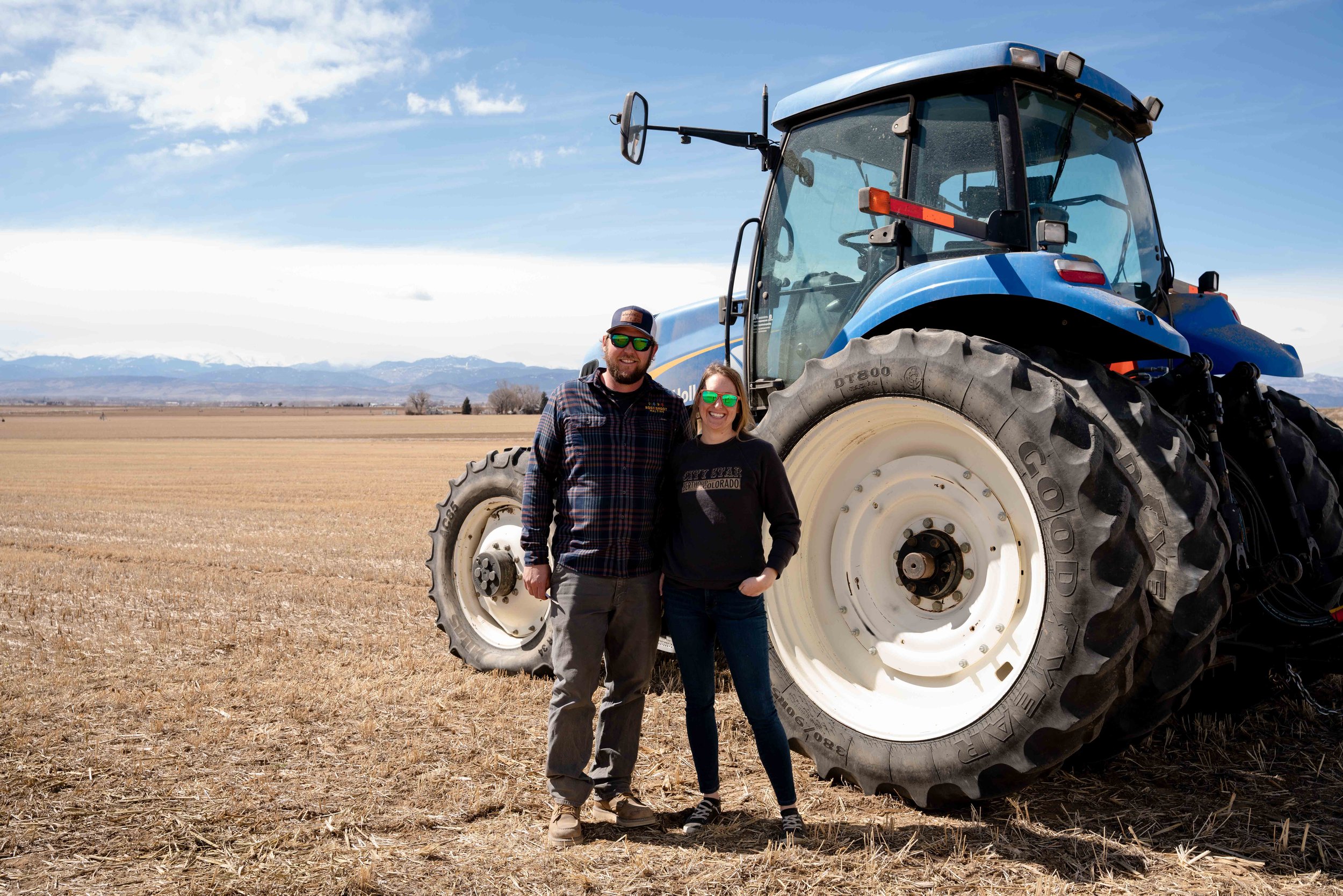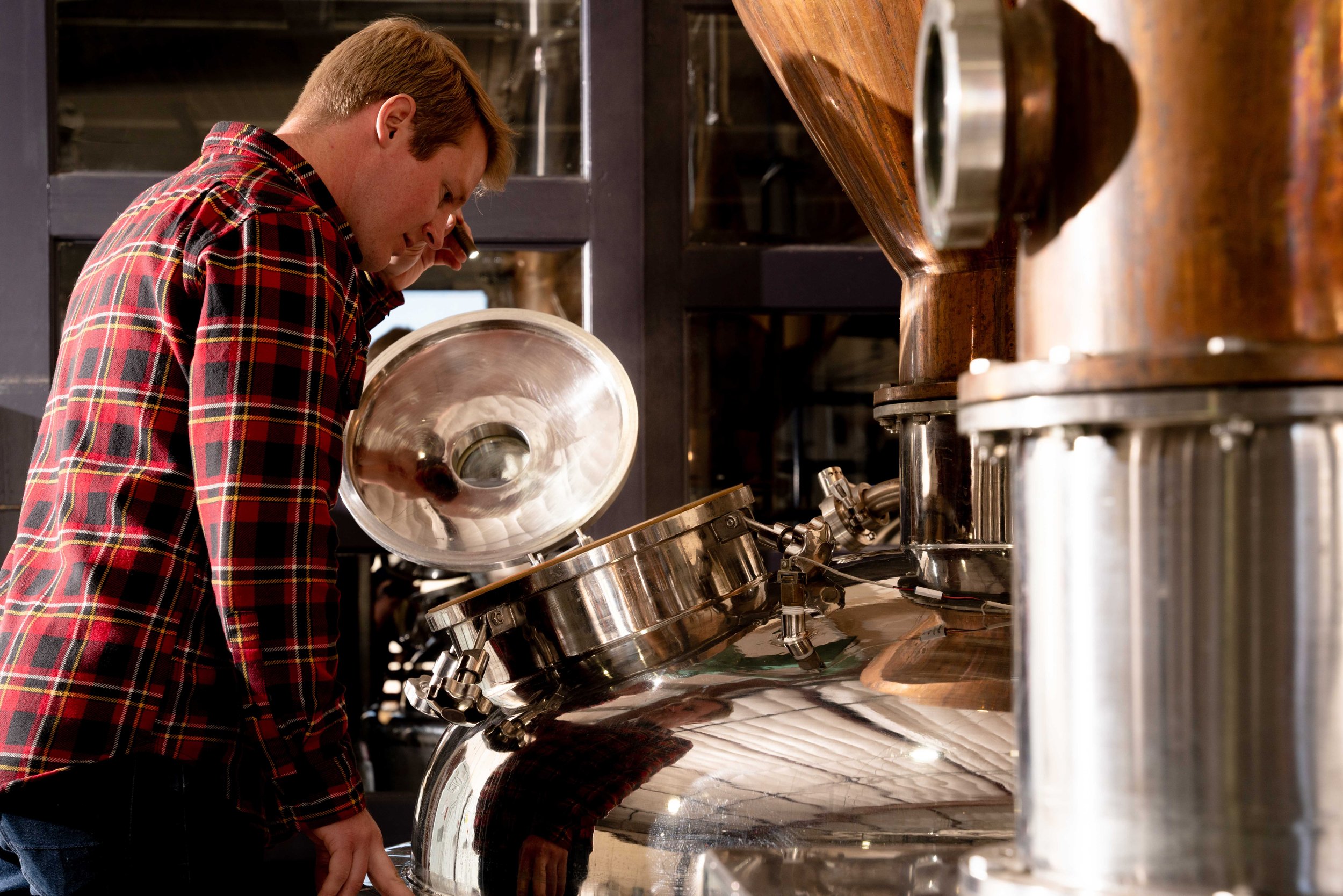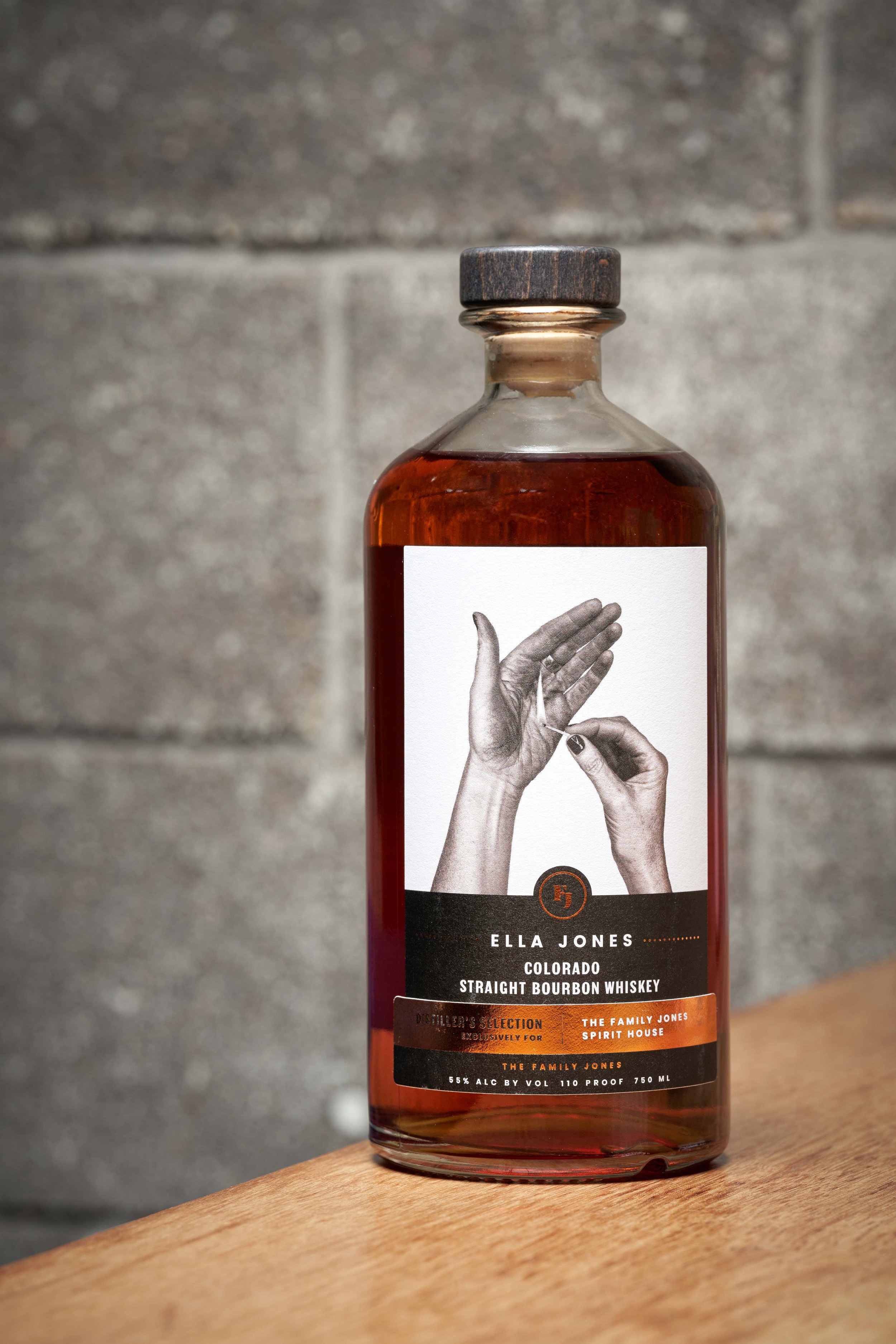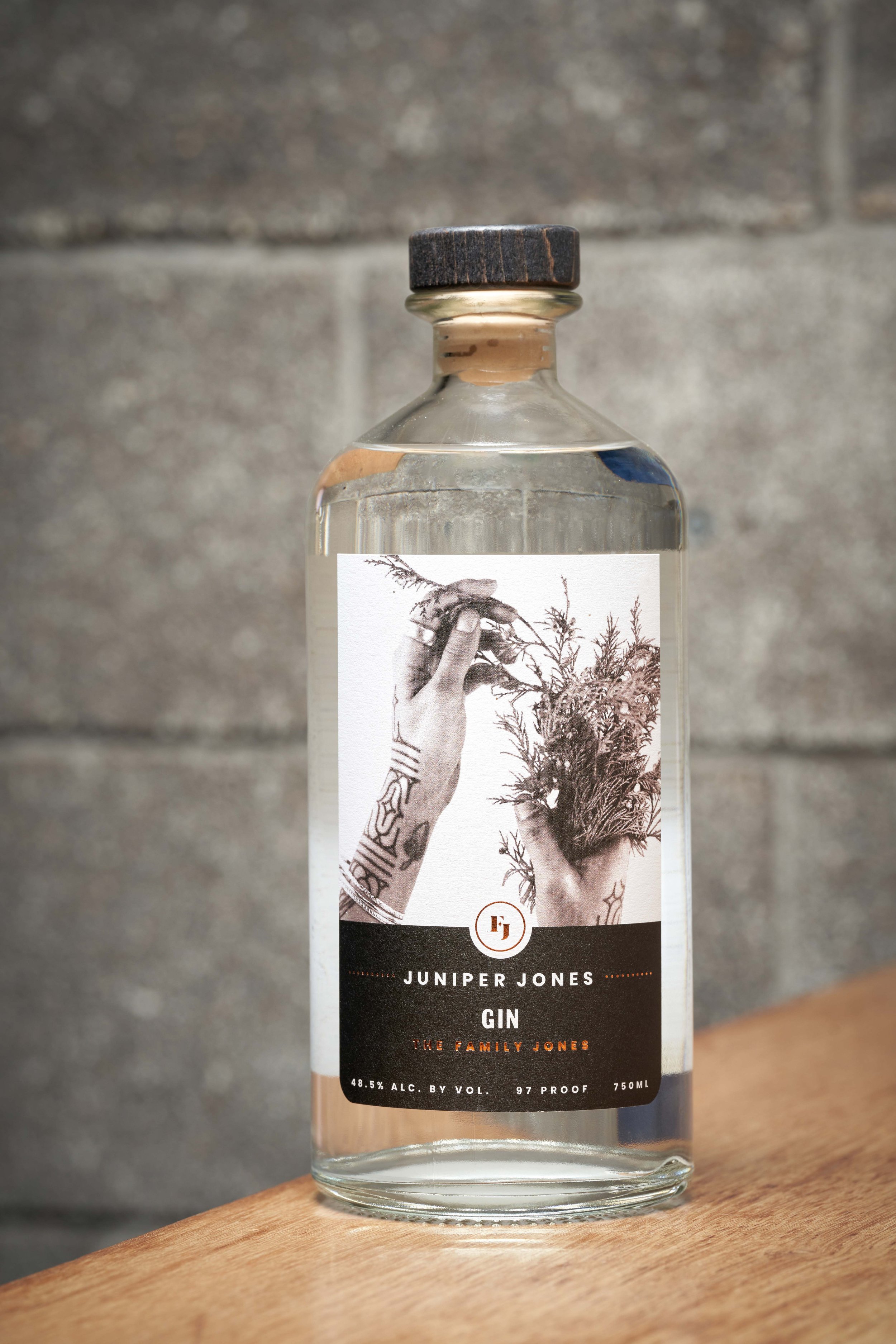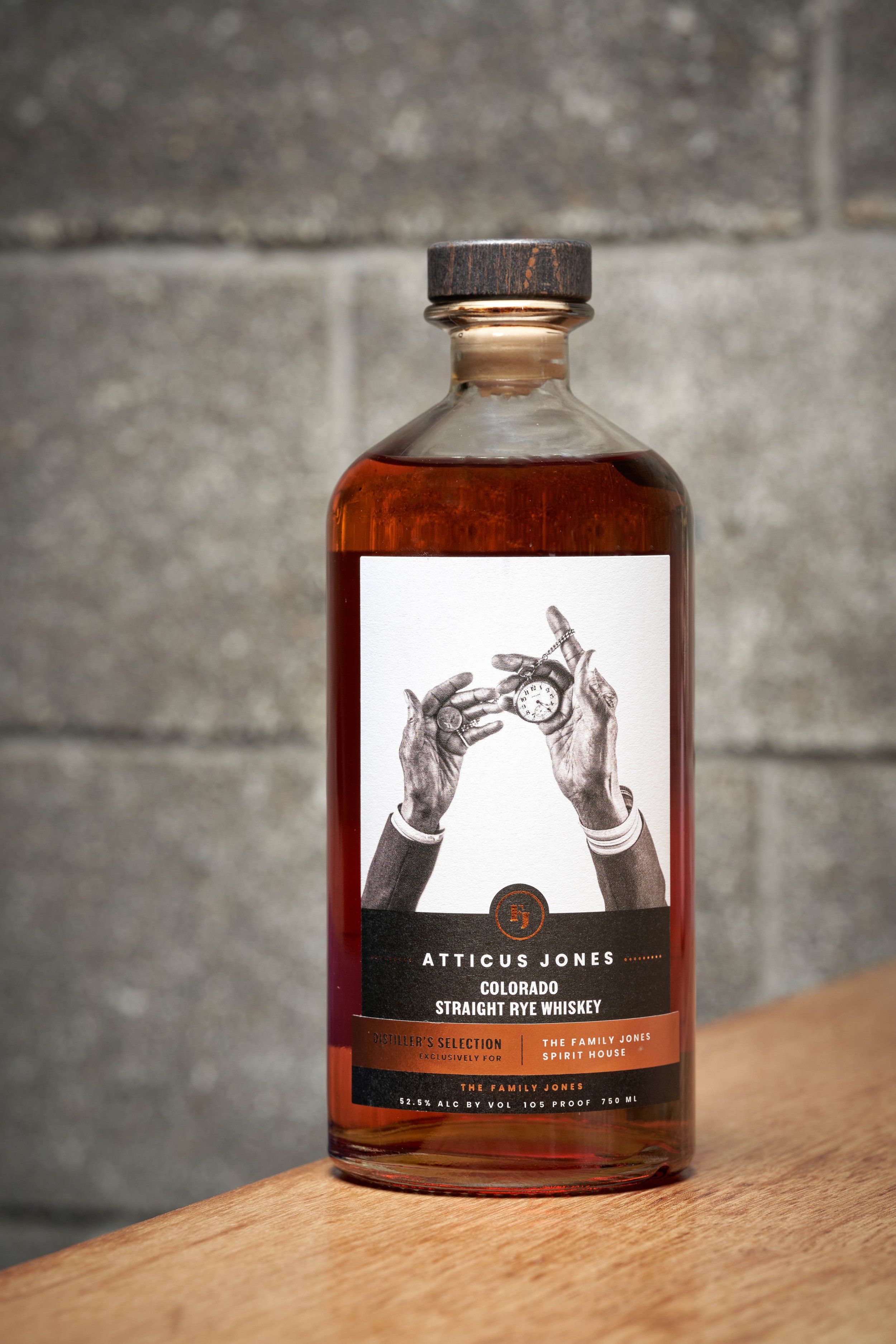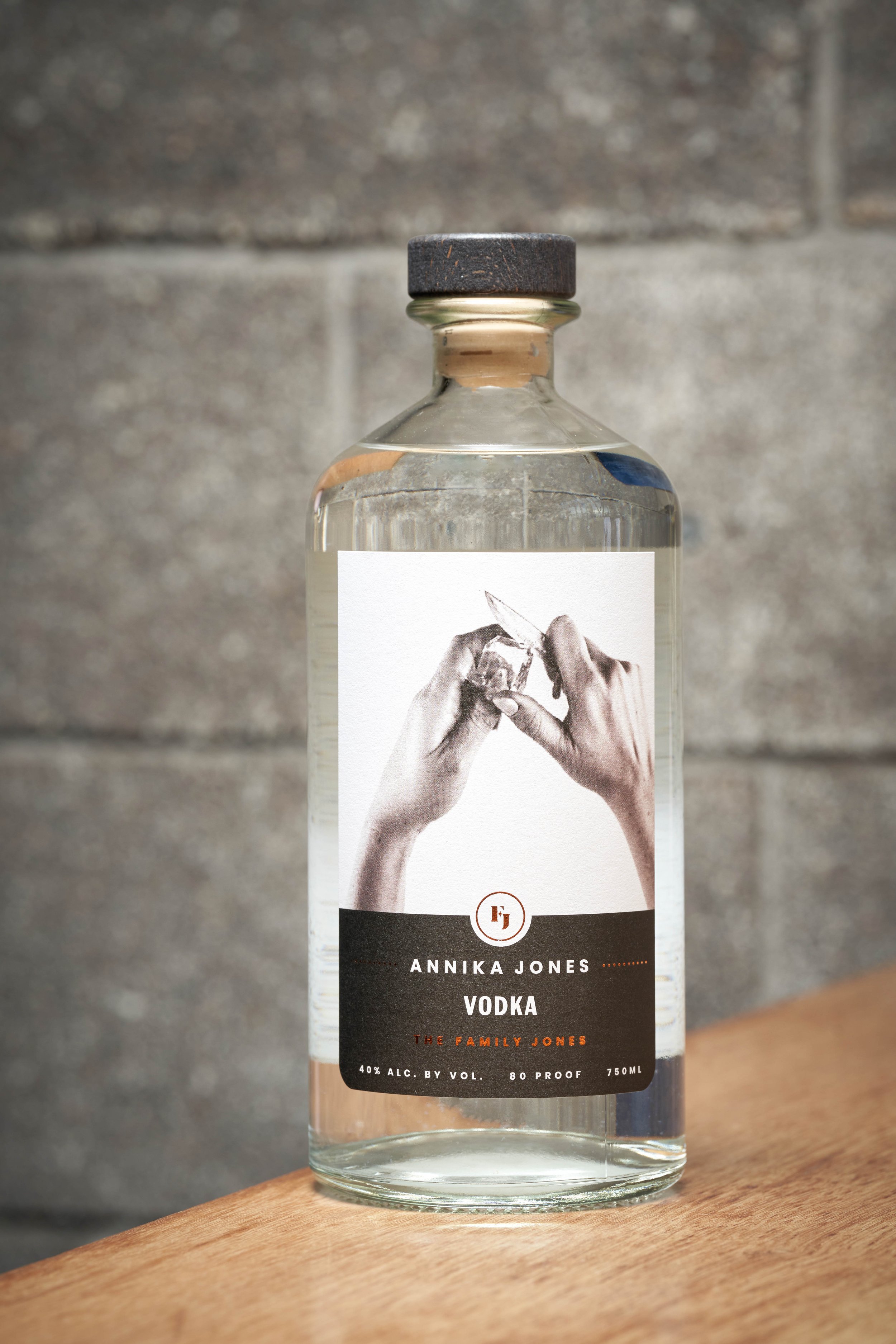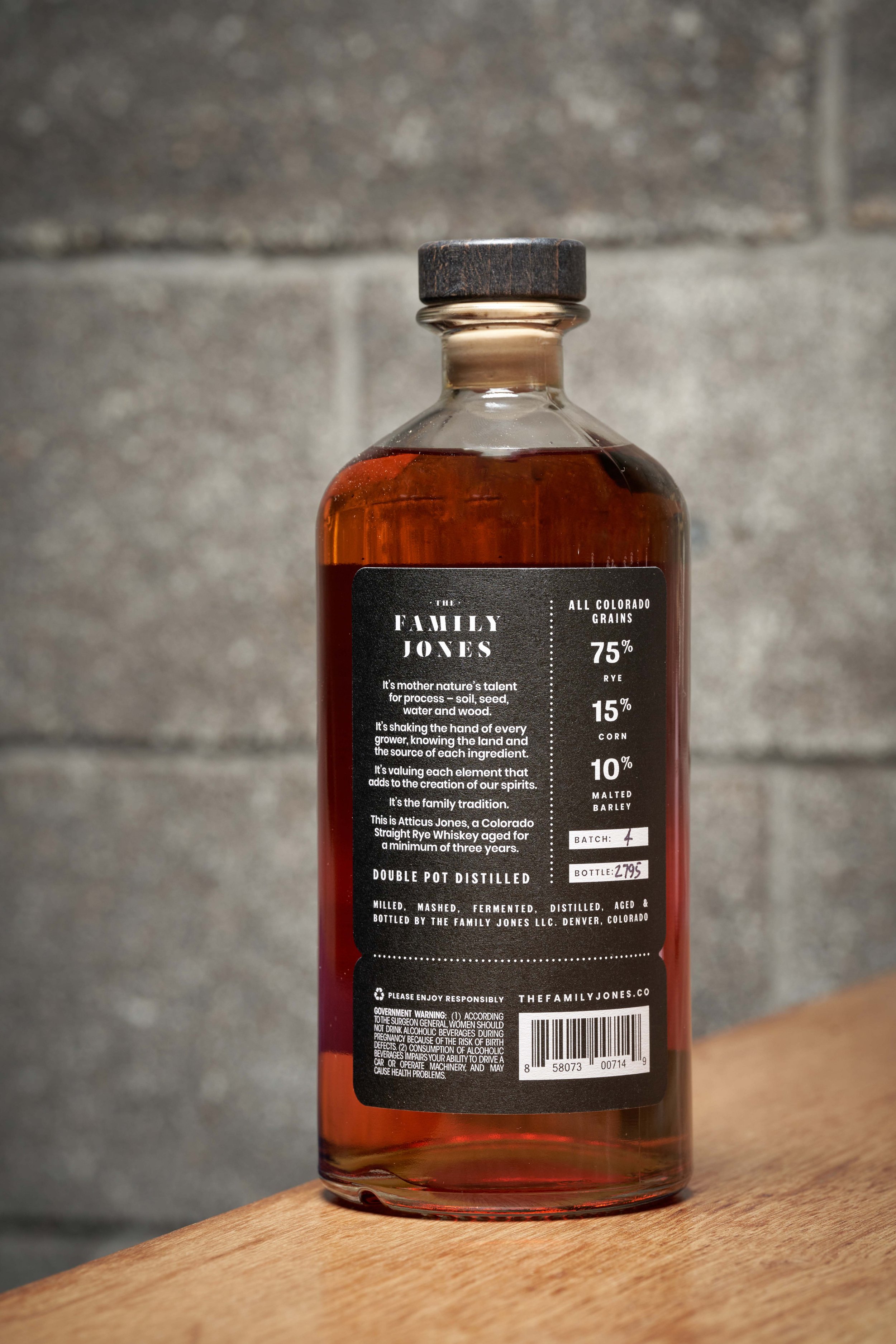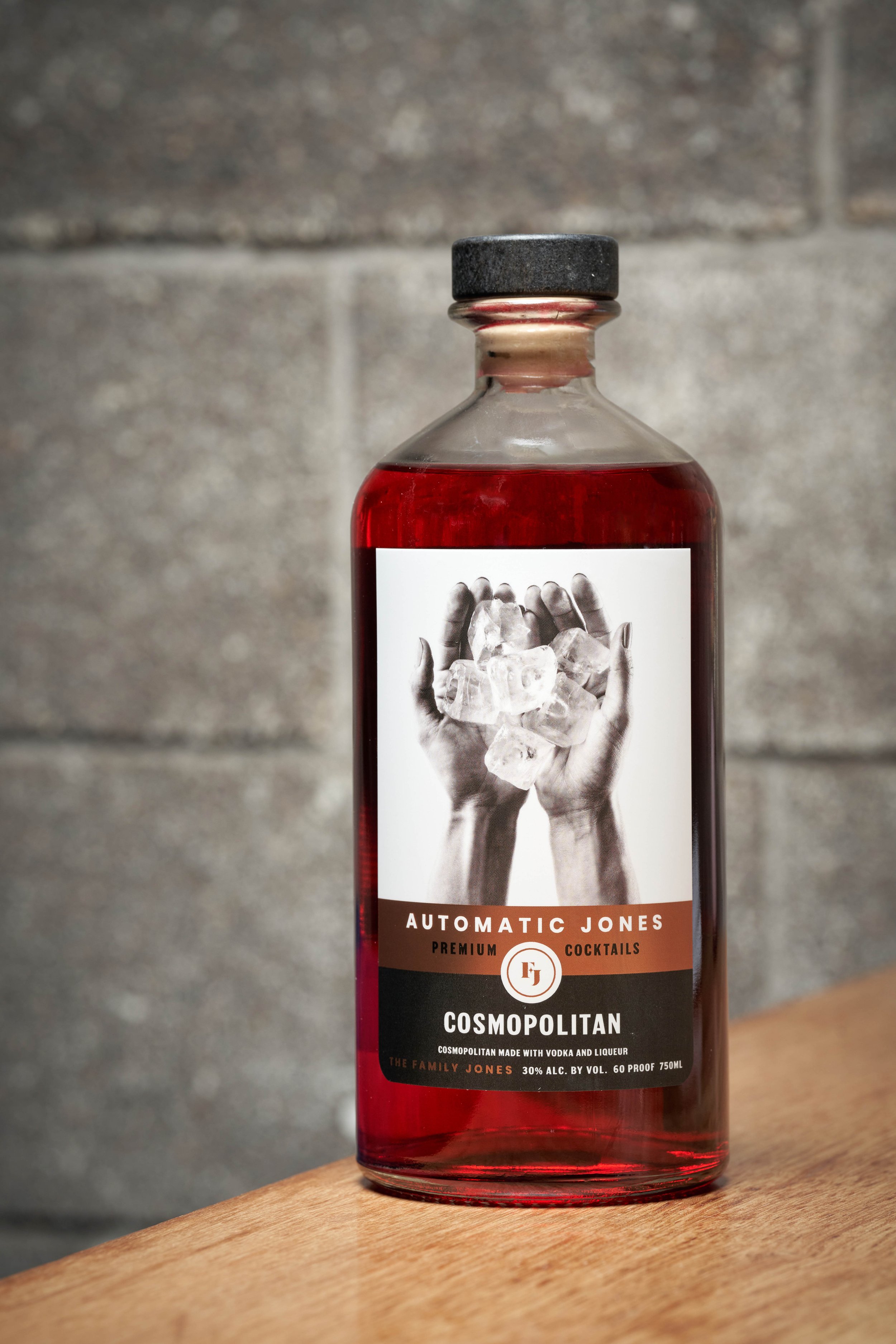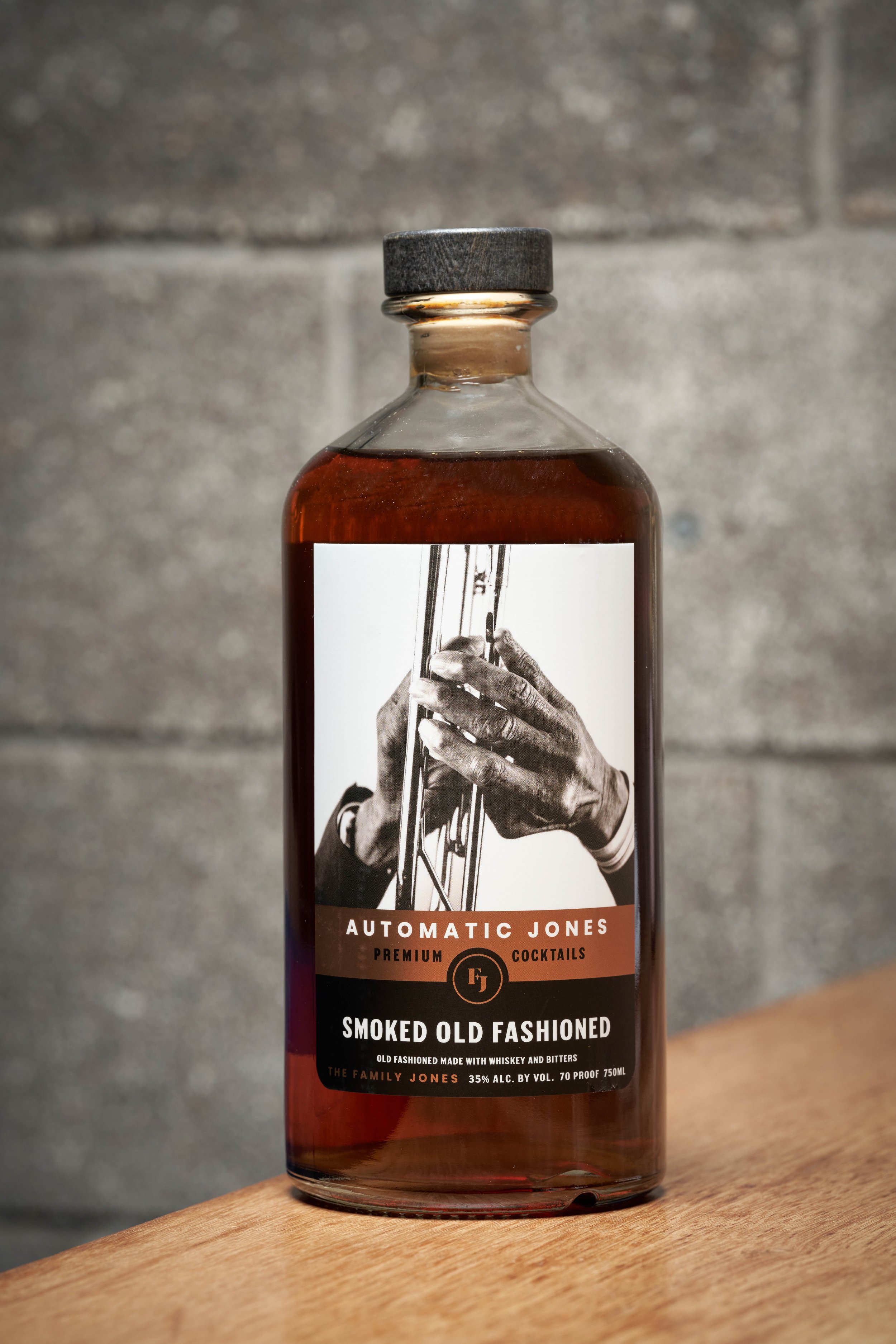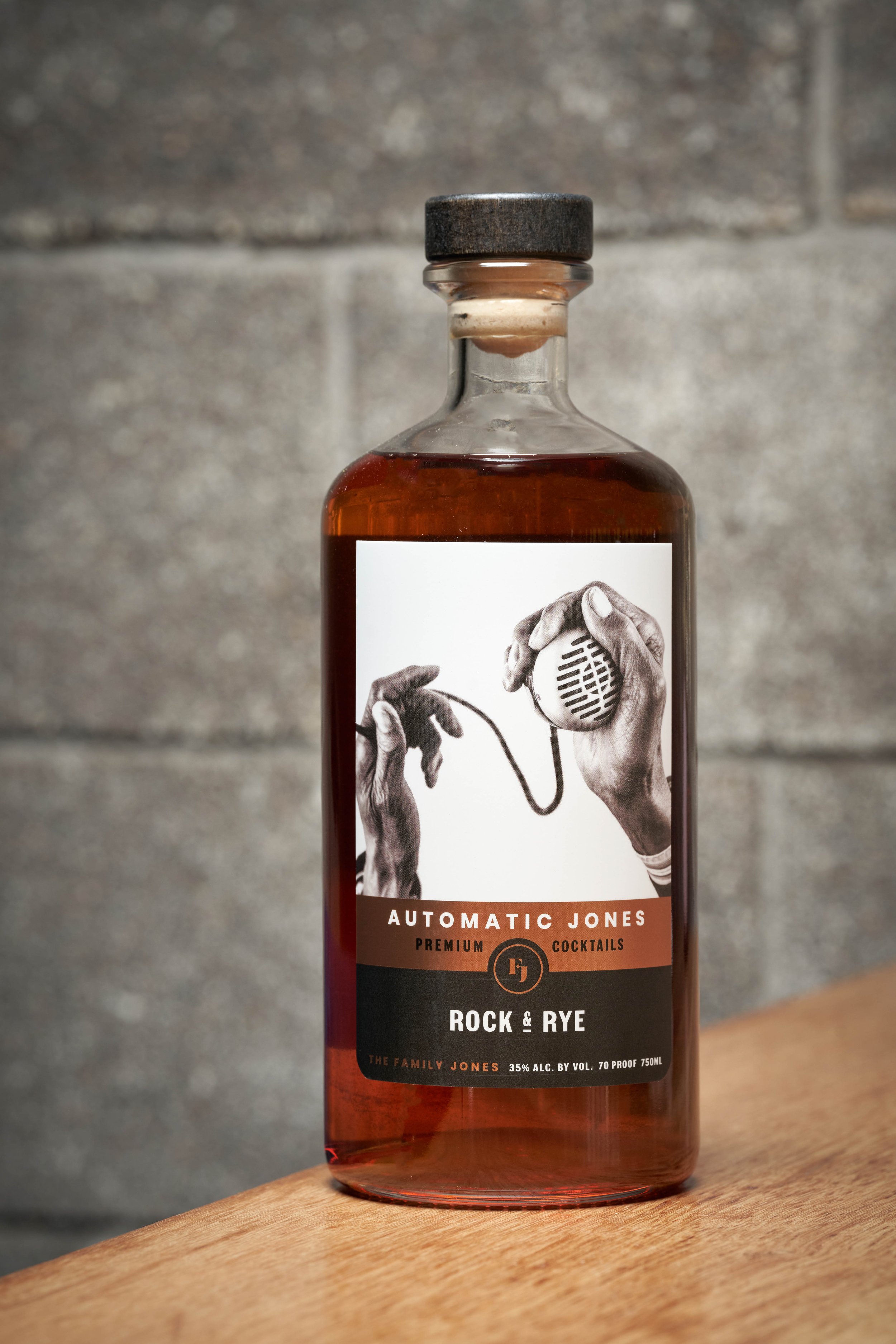Family Jones
By Meghan Swanson
A good coach can take a sports team to the highest level of competition and drive that team to winning it all. A great coach - the kind whose words you find dropping from your mouth twenty years later when you’re teaching your kid to play, the kind whose retirement party is packed with multiple generations of former players - can also do that. The good coach pushes their elite players to new heights, but the great coach doesn’t just push for greatness; they pull for it too. The great coach reaches a hand out to the new, the unskilled, and the unsure, drawing them in, assuring them, ‘You belong here. Welcome to the team.’ Rob Masters, head distiller at The Family Jones, knows this. When he transitioned away from a career in professional sports management to enter the world of distilling, he brought that teamwork frame of mind with him. The result is The Family Jones, a Colorado distillery that has been making waves and winning awards–and wants you on its team, no matter how new you might be to the scene.
“Some people go fishing, some people go hunting, some people travel around and follow the Grateful Dead. My hobbies are eating and drinking–I love good food, I love well-made cocktails, and whiskies, and other spirits.”
Rob grew up in Minnesota, where, “you’re basically born with skates on,” he jokes, “so hockey is what you do.” Rob attended the University of Minnesota, where he earned a degree in sports management, which he describes as “a blend of kinesiology and sports management.” Directly after graduation, he moved to Colorado in 2000 to manage Colorado College’s men’s hockey team. After five seasons with the Colorado College Tigers, he moved away to work for the Chicago Blackhawks. Rob managed the Blackhawks’ minor league team for two seasons, all the while feeling the draw of the West. He had met the woman who would become his wife during his time at Colorado College–in fact, they became engaged between Rob’s seasons with the Blackhawks organization. A standing joke in the business is that NHL doesn’t stand for National Hockey League, but for ‘No Home Life’. “That’s true,” Rob tells us. “It’s no way to raise a family or anything like that.” he says. He left his semi-nomadic hockey life, his possessions numbering one Apple computer, one Subaru Outback, and everything that could fit inside said Subaru. “I threw everything in my car,” he remembers, “and said ‘I got nothing to lose.’”
Back in Colorado, Rob ended up helping out a friend running a distillery. “I helped him on the business side of things, dealing with the TTB, all the paperwork, all that.” Rob recalls. When that friend sold his business and moved away, one of the investors called Rob; they wanted him to start another distillery. He moved into the world of beverage alcohol full time in 2007. Two years after he left professional hockey, the Chicago Blackhawks brought home their first Stanley Cup since 1992; they would go on to bring home two more in the next six years. “Like 90% of that team was my team, in Norfolk and Rockford. So a lot of friends were in the Cup, and I had a lot of fun watching that.” Rob recalls. In the world of hockey, he had pulled a rare trick: the transition from fan to professional, contributing in a concrete, traceable way to the actual victory of the team. He was about to do it again, but this time in the world of distilling.
Rob’s interest in distilling, like hockey, took root very early. As a child, he’d spent a lot of time with his grandparents at the family cabin in western Wisconsin. “They were World War Two people–my grandfather was in the war. He was at Pearl Harbor when it was bombed.” he reveals. “That generation had their cocktail hour every afternoon,” he recalls. “Every afternoon, my grandpa would have a gin and tonic, or he would have a Manhattan, or he would make a martini sometimes.” he says. “Of course, I would drink apple juice or sparkling water, whatever–some sort of fancy kid cocktail with bright orange cherries,” he laughs. “I grew up with these traditions, and so I love the tradition of that.” he finishes.
Rob both distilled and consulted in the years to follow, helping to found the Colorado Distillers’ Guild and meeting people from all over the beverage alcohol scene. One of those people was Patricia Calhoun, editor at Westword, Denver’s favorite alt-weekly, with whom Rob worked on the Colorado Cocktail Project. She had another friend, Paul Tamburello; a former youth pastor turned real estate broker, Paul’s imagination had been captured by the idea of opening a distillery. Patricia connected Rob to Paul, and the rest is history, “A few days later, we got in his car and drove around town and looked at some of the properties he had that he was developing.” Rob recounts. “We ended up deciding that this property we’re in right now,”--Rob indicates his surroundings, The Family Jones Spirit House on Osage Street in Denver–”would be a great spot for a distillery-slash-tasting room.” he says. “So he and I got together, found a group of investors, raised some money, and got this thing off the ground.” he sums up.
“These farmers are our friends, and ultimately, our family. We are very conscious of trying to make sure we are taking care of our employees to the best of our ability.”
Building The Family Jones was by no means a one-man effort, and Rob is quick to tell us so. He lists all the employees, current and former, by name, extolling their virtues and recounting the specific ways in which they contributed to The Family Jones’ success. “We just have an incredible team, full of great people. There are no assholes on our team, there’s nobody that walks into the room and sucks all the air out of it. There’s nobody with a major ego,” he asserts. “I was on an investor call the other day, and I said that if the zombie apocalypse happened tomorrow, I would take every one of these people on our team with me into battle.” he recounts. One can imagine The Family Jones’ tight-knit team would make for formidable foes if life in Denver suddenly imitated Shaun of the Dead.
The team mentality doesn’t stop with the people on the The The Family Jones payroll; Rob extends it to the people who grow and supply the grain they use to make their spirits. “Probably the most important thing that I want to talk about, when we talk about who we are and what we do, is that I’ve shaken the hand of every farmer that we’ve bought grain from to date.” Rob tells us. This might not sound significant to some, but the deal-sealing, look-you-in-the-eye physical handshake has long been a sacred bond of highest primacy in the West. It is also becoming something of a rarity in this age of Zoom calls and Docusign.
“For us, the farmer is super, super important. It’s not just another vendor. We choose farmers who care for the land in a certain way; regenerative farming is very important to us.” Rob says. Simply put, Rob tells us that a farmer that practices regenerative farming “gives a shit about their lands–to the point that the dirt is healthy, the dirt has bugs in it, and the dirt is going to survive.” This is meaningful to The Family Jones in two ways. “First and foremost, it’s good for the earth. Second, it’s also good for the grains.” Rob explains. Forging strong bonds with their farmer suppliers has allowed the The Family Jones to be invited to the table for discussions about what types of grains are going to be planted and resulted in a better financial relationship for both parties. “The family aspect is important to us. The family farm is an element of the The Family Jones genome.” Rob explains.
“You have to know the science side of it to make something; you have to know the art side of it to make something good.”
Rob is tight-lipped about The Family Jones’ proprietary strains of yeast; when asked about them, he responds with a smile, a little jocular profanity, and little else. When it comes to their mash bill, however, he’s an open book. “We hold the same percentages in the mash bills of all our products,” he explains. “75% of the primary grain, 15% of the modifying grain, and 10% malted barley.” he tells us. For example, their Ella Jones Colorado straight bourbon is 75% corn, 15% rye, and 10% malted barley while their Willow Jones wheated bourbon (limited release) is 75% corn, 15% wheat, and 10% malted barley. “We hold the percentage of the mash bill but we swap out the modifying grain because what I want people to be able to do is have a side-by-side tasting of all these whiskeys, and understand what grain brings to the table.” Rob reveals.
Rob will admit that there are two strains of proprietary yeast, and that both go into their whiskeys regardless of whether the end product is a bourbon, rye, wheated, etc. “So all of the factors stay fairly similar–we can’t control what Mother Nature does to evaporation in the rackhouse, we can’t control what she does to the grain in the field,” Rob observes. “But we can control how we mill it, how we mash it, how we distill it, what kind of barrel we put it into, and then how we blend in the water we’re using, and the alcohol percentage.” he explains. “And then you get to taste this vertical of all these different whiskeys and understand why a rye whiskey is different from a bourbon.” he finishes. “That’s ultimately why we have the spirit house, is to teach people stuff like that.”
This dedication to consistency has led other people in the whiskey world to question Rob and The Family Jones. They wonder, why keep the same ratio in each mash bill? Why not match it to the desired whiskey type? “I think it’s a very balanced mash bill. If you’re going to make bourbon, let corn be the star of the show. If you’re going to make a rye, let rye be the star of the show. 75% is enough that it can be the star.” he explains. “Every step of the way we’re looking at balance,” he asserts. “I feel like it’s a good balanced mash bill that really highlights the main grain while allowing the other grains to be part of the show. A good band is not just the lead singer; you still need a good drummer, a good bassist, and a good guitar player.” he points out.
“One of the things I love about my job is teaching people about why they should give a shit about craft whiskey or craft spirits in general.”
There’s a facet to Rob’s personality that tells you he’d make a really good rooster in another life; he wants to bring everybody in the barnyard under his wing. This instinct seems to be a strong contributing factor to the creation of The Family Jones brand. “We wanted something that was all-inclusive, that would include everybody,” he explains. “We knew we were going to have a spirit house, and we knew that spirit house was going to be a cool, sexy, fun place to hang out in a neighborhood.” he tells us. “We’re not in an industrial park. We’re not downtown. We’re in a neighborhood.” he stresses. He brings up the idea of the ‘cool house’ in the neighborhood. “When you were growing up, you had a friend who had a house that everybody wanted to hang out at. Maybe they had the newest Nintendo, maybe their parents were really good cooks,, maybe their dad was cool–whatever,” he says. “We wanted to be that place where people wanted to hang out with the Joneses.” he tells us. Why Jones? “Jones is an all-American name.” Rob points out. “Everybody knows somebody named Jones, it’s one of the most popular names in the country; and it’s just kind of cooler than saying the Family Johnson or the Family Smith.” he says with a smile.
“We don’t want to be LoHi distillery, or Colorado distillery, or Denver spirits company…we wanted something that was just a little different. Because we are a little different.” Rob says. They extended this mindset to their label design, eschewing the term ‘handcrafted’ in favor of simply putting actual hands on their bottles. Local fine art photographer Jack Ludlam took the shots of hand models–and in at least one case, the hands of the wife of the farmer who grew the wheat–for each of The Family Jones’ flagship products. “Hands on the bottle means it was handcrafted in Colorado.” Rob reveals. “We didn’t want to put ‘handcrafted’ on the bottle because I feel like it’s overdone. When Burger King starts talking about Angus beef and farm to table, you know, it’s tough to have buzzwords like that.” he says.
Each of their flagship, or ‘Original Jones’ spirits is a fictional member of The Family Jones; Atticus, Ella, Annika, Juniper, and so on. They all come from hours of meetings in which the team decided what fits the spirit in question. Annika Jones vodka conjures the foods and traditions of Rob’s Scandinavian grandmother and its heirloom variety of wheat originating from a small island south of Sweden. Atticus Jones rye whiskey brings to mind the wise attorney from To Kill a Mockingbird, a respected figure sitting on a front porch on a warm night whittling the hours away. Ella Jones bourbon is a stereotype-flipping take on the traditionally masculinized drink, giving a nod to all the strong women of the world. “Like Rosie the Riveter, right? Or Ella Fitzgerald. Strong personalities, women who aren’t afraid to get their hands dirty.” Rob explains.
The Family Jones’ unusual brand helps them stand out in the world of whiskey–fine art on the bottle, women’s names on some of the spirits…even their name sounds different than so many other distilleries. It intrigues and compels, and feels utterly of-the-moment. These were all smart choices, but the essence of the brand goes deeper than good marketing.. “We didn’t hire a marketing team to do a survey of kids walking around a college campus to talk about what the buzzwords were that they care about.” Rob tells us. “We’re doing things right,” he explains, “by working directly with farmers who are working the land in a way that’s going to help save the world. It’s the right thing to do.” he says firmly.
“The Family Jones is meant to be all-encompassing, all-inclusive. There’s no limit to who can be part of the family.”
Rob Masters, a Minnesota boy born with ice skates on his feet, knows a lot about building a good team. “We are a small business. Everybody has to clean the toilets, everybody has to go out and sell stuff, and everybody has to carry the flag.” he tells us. “And that’s what you do in a family right? True families are sticking together.” he finishes. “That’s the thing; there’s the family you’re born into, and the family you choose.” he adds. So who has chosen to be part of The Family Jones? “At a high level, it’s anybody who has drunk our spirits, anybody who’s had experience with the things we make, it’s anybody who has walked in the door of our spirit house and sat down and had a cocktail made by our bartenders.” Rob says. “On a lower level, it’s anybody we bought something from, whether it be grain, or glass, or labels, or yeast, or water; whatever. It’s our distributors out there selling our products and delivering our products. Of course, it’s our team, our employees, our shareholders, our investors.” he says. “We just want you to experience what we do and why we do it. And then, you’re part of the family.”
